Pass leaves legacy of teaching, caring, connecting
Throughout his eight years at Mac, retiring math teacher succeeded by putting his students first, his subject second
THE PATH TO “AN A IN BC” STARTS WITH A CUP OF JOE: Math teacher Scott Pass established a spring semester tradition of zero-hour BC “calculus and coffee.” He made his 7:30 a.m. calculus class more of a community by providing fresh coffee from the caff and decaf coffee makers in his classroom. File photo from Jan. 7, 2020.
August 5, 2021
When Scott Pass joined the Maculty eight years ago, the school knew it was getting a great math teacher. Pass arrived at Sunshine Drive with a College Board pedigree as a veteran Advanced Placement math teacher who taught other teachers how it was done.
His department acknowledged his profound impact on how math is taught not just in his class but throughout the department at the year-end faculty meeting on June 4.
[Scott Pass] can tell a story about every signature on the college pennants that adorn his classroom wall.
— Sophie Ryland, Class of 2019
Department chair Angie Seckar-Martinez credited Pass, who retired from Austin ISD at the end of the 2020-2021 school year, with expanding the math offerings at Mac to include BC Calculus, multivariable calculus and computer science.
“He has so much wisdom,” Seckar-Martinez shared with her colleagues. “He has pushed us in so many ways.”
There is no doubt that Pass is an excellent math teacher, respected by his peers and his students, but to stop the story there is to miss the point entirely about what makes him a truly exceptional teacher, one who will be sorely missed at Mac when school resumes on Aug. 17.
James Wilson, a longtime assistant principal at McCallum who preceded Pass in retirement by a couple of years, used to tell first-year teachers at Mac before their first day every year that to get students to learn you must first show them that you care.
You would be hard-pressed to find a teacher at Mac or anywhere else who understands this truism or embodies it more than Scott Pass.
“He really was able to understand the value of connecting to us, [not] just trying but truly caring,” said 2021 graduate Isabella Dietz, who had Pass for precalculus her junior year.
It is a sentiment that was repeated over and over by his current students and by alumni from years long gone by. And it was embodied by one of the many signature elements of Pass’s classroom: the collection of college pennants that hung on Pass’s wall. Each flag was from a college that one of his students attended.
I just love how he remembered me like three years later when I wasn’t necessarily the ‘known’ student with how quiet I was that year. It shows how much he loved what he did by remembering who he taught.
— Tobias Leal, Class of 2019
Sophie Ryland, Class of 2019, remembers the collection vividly five years after she first entered Pass’s classroom as a sophomore precalculus student.
“He really does remember and care about each and every one of his students,” Ryland recalled. “He can tell a story about every signature on the college pennants that adorn his classroom wall.”
She knows this because of her brother Nick, who preceded Sophie as a Pass student.
“Five years after he taught my older brother, he’d ask about very specific details he remembered my brother mentioning,” Ryland said. “Feeling like he would similarly care about and remember me as a student was a really warm and motivating feeling.”
Several years after Ryland had left Pass’s classroom and ventured onto UT, Marina Garfield would have the same experience as a precalculus student in Pass’s class this school year.
“He was always so supportive,” Garfield said of her year in his class. “His passion for what he did inspired me to work harder.”
But Tobias Leal, Class of 2019, learned that for Pass it wasn’t about the grade a student received.
Leal remembers that during his senior year, Pass would approach him in the hall even though he hadn’t been his student since freshman algebra in 2015-2016.
“He would ask how I was doing, and it meant a lot to me,” Leal said. “I just love how he remembered me like three years later when I wasn’t necessarily the ‘known’ student with how quiet I was that year. It shows how much he loved what he did by remembering who he taught.”
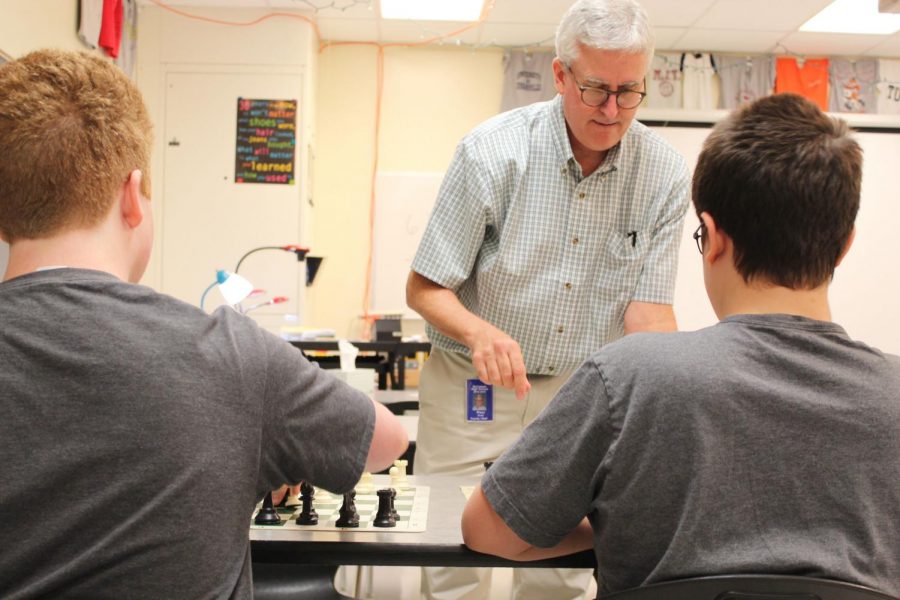
MAKING CONNECTIONS
Like many Mac teachers, Pass found it difficult over the past year to make connections with his students in a virtual environment.
“For me, education has a lot to do with personal connections with students,” he told the Shield’s Lucy Marco in an interview this past spring. “When there’s downtime in class, I can ask kids what they like to do, I can ask kids what music they like, I can just get to know them, and that’s been taken away from me. It just doesn’t work as well virtually. So the connection to the student for me personally has been the most difficult thing.”
Education has a lot to do with personal connections with students. When there’s downtime in class, I can ask kids what they like to do, I can ask kids what music they like, I can just get to know them.
— math teacher Scott Pass
Despite his critical assessment of his virtual classroom, his online students said that they appreciate his effort and insist that in a most difficult year, it made a tremendous impact.
“Every day without fail he would ask individual students in class how they were doing,” junior precal student Anna Bausman said. “Mr. Pass also took the time to learn what his students did outside of academics. He asked the customary ‘How are you?’ but what was really special was how he then went on to ask about how one student did in the most recent soccer game, or in their performance or even whether a student had passed their driver’s test.”
Darlene Marsh agreed that his interest in their lives was no passing fancy.
“He genuinely cares about his students and wants to learn from them,” she said of his daily 20-minute investment in asking his students about their lives and relating their experiences to his.
“It’s clear that he doesn’t just do this as a formality,” Marsh said. “He really listens and cares about what his students have to say.”
To hear recently graduated Andrea Paredes describe it, Pass acted more like an enterprising reporter than a multivariable calculus teacher.
“He would ask us [questions] first thing on Zoom and then after we would start class, sometimes he would ask follow-up questions throughout class to keep us engaged,” Paredes said. “He cares about us deeply.”
Dietz felt the same way and deeply appreciated it.
“He also was genuinely interested and concerned with us all as individuals and would stay up to date on what was going on in our lives, which few other teachers I’ve ever had [have done] especially on the scale that he did it,” she said. “He didn’t pick and choose who to pay attention to [either]. He would include everyone in his attempts to make connections.”
And when we say everyone we mean everyone that he came across, not just his own students.
Just ask Carrie Ann Murfin.
[Scott Pass] was the wise sage who I turned to when I had questions. He was someone who was always patient with me when I had questions about how he explained a concept or even when I would check my answers with him
— former Mac math teacher Daniel Vega
“I never had him” as a teacher, Murfin told MacJournalism, “but I’d go to his class at lunch sometimes and he would always help me with homework.”
And when we say everyone, we mean everyone that he came across, not just students.
Just ask former math and computer science teacher Daniel Vega.
“He was an amazing mentor and always a kind person my entire time at McCallum,” Vega said. “He was the wise sage who I turned to when I had questions. He was someone who was always patient with me when I had questions about how he explained a concept or even when I would check my answers with him.”
That’s right. Pass is the kind of teacher that would help other teachers with their homework.
And he didn’t have to be helping with math either. He helped everyone with everything.
Just ask his round table students. We did. According to one of them, M. E., who asked that we use only their initials because they did not want to draw attention to herself, Pass was committed to being there for his advisory students.
“He was always cheerful in advisory and did his best to build connections with his students,” she said. “I came to advisory in person once, and he asked everybody about everything from how their weekend went to what our favorite TV shows were.”
While it may have seemed like a small gesture, she said it revealed that he was genuinely interested in them and in being present in their lives. She remembered one particularly memorable round table discussion in which he stressed how important it is to take a break once in a while.
“He was talking about meditation and the importance of just taking a moment to breathe,” she said.
Pass has shown a commitment to that practice like few teachers at Mac or anywhere else.
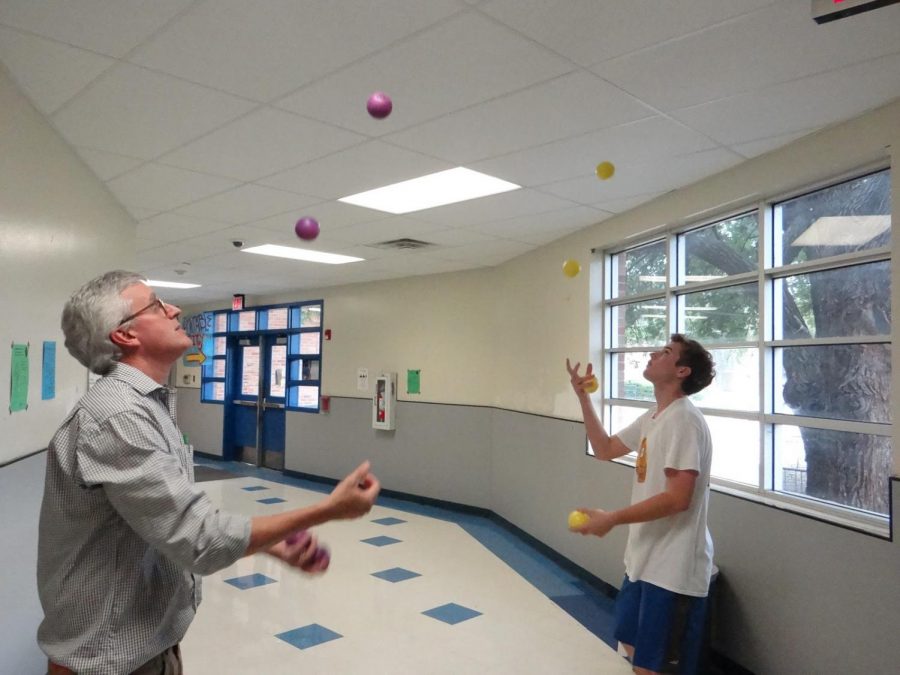
CHANGING THE SUBJECT
Perhaps no one is better at giving his students a break from their subject than Scott Pass.
Like many students, sophomore Charlie Partheymuller spent much of his school year taking classes virtually over Zoom, and it wasn’t until he decided to come to campus that Partheymuller got to experience the full Pass penchant for changing the subject from math to something else.
“He helped me finish my homework early,” he said of his first in-person class with Pass.
I wasn’t feeling super great one day, and he just started chatting with me about how ‘snazzy’ my sweater was, and it immediately made my day 100 times better.
— senior Charlotte Williams
“He taught me darts,” Partheymuller said.
Darts? What was the point of that?
“He ended up using darts in a lesson for his calc students so to let time pass in my precal class, he taught us all darts and different board games,” Partheymuller said.
Salem McFadden told a similar story.
“I was mostly virtual, but the in-person days were more fun,” McFadden said. “He has a dart board in his classroom, and I learned the game of darts by being his student. I also learned a lot of pre cal stuff, but I thought darts would be more interesting.”
Pass was probably thinking the same thing that day. And it’s not an exception. We asked current and former Mac students to tell us what they admired about Pass, and many of the respondents told stories about times that Pass changed the subject to keep his students engaged to offer them a richer experience.
The diversions listed by his former students included but are almost assuredly not limited to the aforementioned darts and board games, book talks, chess, coffee, doodling, McDonald’s runs, sharing personal stories, tea parties, woodworking, and of course … the rejuvenating distraction for which he is most known … juggling.
While Pass was probably most known for his ability to juggle, sometimes expertly juggling things he first set ablaze, students mentioned much smaller moments that held significant meaning for them.
Anna Dorrien recalled one time when Pass was reviewing a problem on the board and he suddenly changed the subject unexpectedly.
“He drew a really funny worm on the board, and it made me chuckle,” Dorrien recalled. “He just drew a smiley face on the board and paused and then kept drawing little circles after it and said ‘I bet you weren’t expecting me to draw a worm.’”
Pass frequently invoked the unexpected when students needed a subject change the most. Sometimes the change was to keep students engaged in the day’s lesson, but sometimes it was just to be kind to a student in need.
We walk to McDonald’s, and [Mr. Pass] figures out how to download the app and order those kids some fries even when the lobby’s not open.
— math teacher Angie Seckar-Martinez
Charlotte Williams recalled one such time.
“I wasn’t feeling super great one day,” she said, “and he just started chatting with me about how ‘snazzy’ my sweater was, and it immediately made my day 100 times better.”
Sarah Weistbrodt credited Pass with making her zero-hour calculus class a daily event she always looked forward to even though the material was challenging and the class started at an ungodly hour.
“He made the class enjoyable by providing a positive work environment for us to study calculus in and by always being optimistic and approachable,” Weisbrodt said. “He also let us make coffee every class, which I always looked forward to.”
And when the coffee wasn’t enough, Pass was more than willing to take a field trip for food.
“Sometimes kids just need a break, and we come down to the cafeteria snack line,” said Angie Seckar-Martinez, who taught the early morning class with Pass. “We walk to McDonald’s, and he figures out how to download the app and order those kids some fries even when the lobby’s not open.”
And it wasn’t only Pass’s early morning class that received the love of distracting food.
Peyton Dashiell remembers that every day was tea party time in Pass’s afternoon multuvariable calculus class.
“He had a kettle and a box of mugs in his room,” Dashiell said, “and we all brought in tea and hot chocolate so we could have some every day.”
A lot of teachers know that food is often a way to their students’ hearts, but you would be hard-pressed to find a Mac teacher or any teacher or any adult who can juggle like Pass can.
Eden Goodman recalled that during so-called Fun Fridays in Pass’s Zoom classes he would juggle for his students on Zoom.
The in-person experience was slightly more memorable, Seckar-Martinez said.
“Sometimes he lights fire to things and goes out to the parking lot and just juggles.”
Years later, Toby Leal still remembers the juggling skills that Pass demonstrated and taught his students.
“It was [a] nice little break from the actual work,” Leal said. “I still try to do it how he showed the class all those years ago. Sometimes I’m successful at it.”
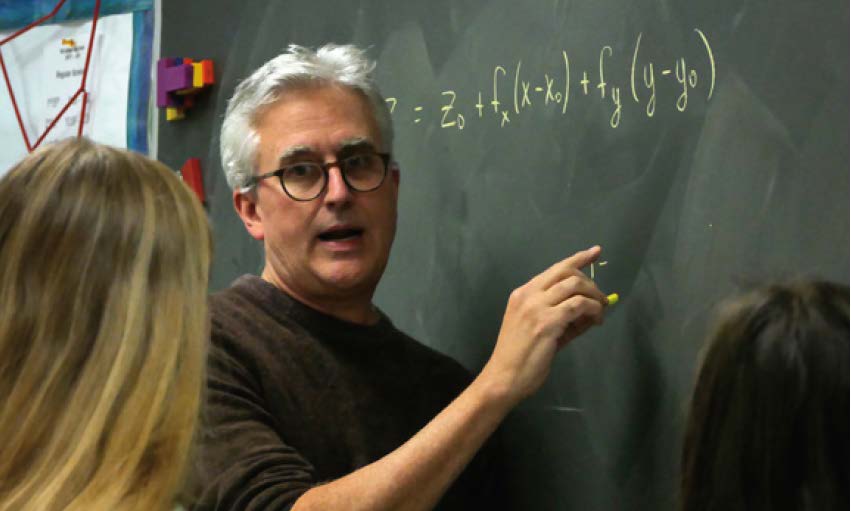
BY THE BOOKS
While Pass was always willing to change the subject to give his students a much-needed break, he also taught them the essential connections between math and the world around them. For Sophia Tissenbaum this was the essential brilliance of Pass’s teaching.
“Multiple times throughout the semester, Mr. Pass would relate our precalculus work to real life examples,” Tussembaum said. “One example was his hobby of woodworking.”
He shared his struggles and success stories at University. From there he found his love of learning and at the same time was able to continue hobbies that he enjoyed.
— Sophia Tissembaum, Class of 2021
Tissembaum said Pass modeled his love of learning most naturally by discussing the books that he’d read most recently. Seckar-Martinez marvels at his reading regimen.
“He starts every conversation with, ‘I’m reading this book, and there’s this one chapter, it’s just this and that,’” she said. “He reads them 12 at a time. He just kind of dabbles. He has so much wisdom.”
Veronica Britton learned this firsthand while a student in Pass’s class.
“He suggested I read Lab Girl by Hope Jahren because I mentioned I loved trees,” Britton said. “It is a super beautiful book about women in STEM and has lots of cool tree facts.”
Knowing of Britton’s passion for environmentalism, Pass had one more gift before the year was over.
“He gave me a book about sustainable production of goods, like how we need to make better quality things,” Britton said.
The book: Cradle to Cradle by William McDonough and Michael Braungart.
“The book is made of plastic and is totally recyclable which is super cool,” Britton said. “He was cleaning out his room so I got to keep his copy which was very nice. I plan on starting it after I finish my current book.”
Tissembaum said that the wisdom of Pass’s reading was infused in the daily experience of all of his students.
“Mr. Pass shared several inspiring stories/lessons from current/past books he has read,” she said. “It was interesting to see how multiple aspects of life can intertwine with mathematics.”
Tissenmbaum said those connections were especially inspiring when they were personal.
“He shared his struggles and success stories at University. From there he found his love of learning and at the same time was able to continue hobbies that he enjoyed. This especially hit home to me because one of my goals is to pursue several hobbies while maintaining a good academic record.”
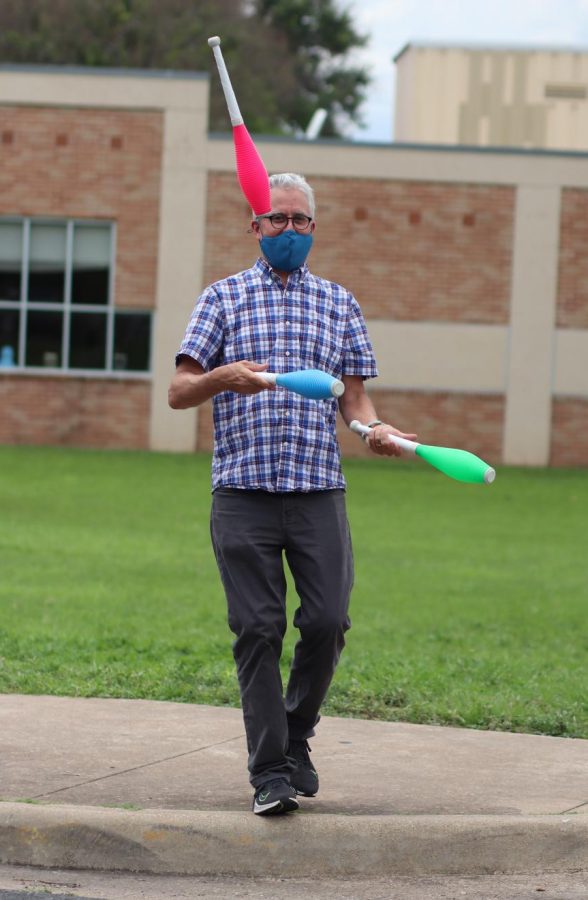
DESTIGMATIZING FAILURE
His students told MacJournalism that Pass was effective because he illustrates how mathematics fit into the world around them. Perhaps most notably, he taught them failure is an essential part of learning in math just like it’s an essential part of learning in life.
He always noticed when you were struggling with a problem and never judged you for it.
— sophomore McKenzie Martinez
Just ask Class of 2021 graduate Ari Miller-Fortman.
“He taught me that making mistakes is all part of the puzzle,” she said.
Dietz also appreciated how that essential understanding underlined Pass’s teaching: “He always did a great job of stressing that mistakes are part of learning which definitely helped not only me but everyone else.”
Looking at failure as a natural part of the experience made Pass extremely effective as a teacher, said rising sophomore McKenzie Martinez, an Algebra 1 student in Pass’s class in 2020-2021.
“He always noticed when you were struggling with a problem and never judged you for it,” Martinez said.
Marina Garfield had the same experience in Pass’s precal class.
“He made me like math,” Garfield said. “He was always so supportive and his passion for what he did inspired me to work harder.”
For Pass, that support included stressing to his students that he could learn from them just like they can learn from him.
“He’s always so engaging and so excited to level with us and learn with us while he teaches,” Class of 2021 grad Hailey McHorse said.
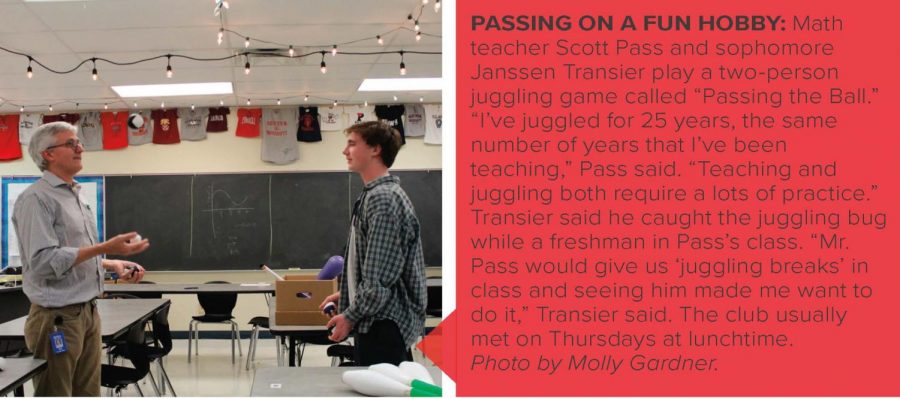
LIFE LONG LEARNERS/MATH LOVERS
When you calculate the sum of all his teaching approaches, you arrive at one unmistakable answer: Scott Pass inspired his students to believe in themselves and their ability to master math.
Dietz is a self-described case in point.
I liked math before his class, but he made me really love it. He recognized my talent for it and never failed to point it out and encourage me.
— Isabella Dietz, Class of 2021
“All of my math teachers at Mac helped me discover my talent and love for math, but Mr. Pass especially,” Dietz said. “I liked math before his class, but he made me really love it. He recognized my talent for it and never failed to point it out and encourage me personally, which had happened in other classes before but not nearly as much or enough. And even with the kids who struggled more than I did or who were reluctant to learn, he was so great at finding our strengths and appreciating them.”
Three years after she graduated and five years after she first entered Pass’s classroom, Ryland still remembers the impact he had on her learning.
“I had him sophomore year first for precal, and it didn’t come naturally to me at all,” Ryland said.
“Mr. Pass was always gracious, patient and eager to explain whatever it was I didn’t quite get. I appreciated his teaching enough that I didn’t hesitate to take zero hour BC calc the next year.”
That decision, Ryland said, was one of the best decisions she made as a Knight.
“I do really like math in general, but it requires a good teacher for me to actually get the concepts,” Ryland said. “Even at the way too early time of the BC class, everyone in the class was happy to delve into these really tricky mathematical concepts along with Mr. Pass (aided by him generously giving us free coffee each morning). The AP exam was the last thing on our minds, but it turns out we were more than prepared to tackle it.”
Scott is big picture. … It’s not, ‘Do the kids know how to factor? Do the kids know how to do this or that?’ It’s, ‘Do the kids know how to think?’
— math teacher Angie Seckar-Martinez
For Pass, it wasn’t about the test. It was about the students taking the test. And to a person, they say that is what made all the difference in his classroom.
“A great teacher can prepare you [for the AP exam] without draining your enthusiasm for the subject or making you feel undue anxiety about mastering it.”
The AP exam was just one example of the many ways Pass succeeded by putting his students first.
“Mr. Pass was an amazing and excellent math teacher,” Tissembaum said. “Not only did he connect with his students but he was able to teach the material in a way that stuck.”
“He has so much wisdom,” Seckar-Martinez said. “In our little math world, we tend to have tunnel vision on skills. Scott is big picture. He is like, ‘Do the kids know how to think?’ It’s not, ‘Do the kids know how to factor? Do the kids know how to do this or that?’ It’s, ‘Do the kids know how to think?’”
Thanks to Scott Pass, they do. They not only know how to think but what they think of a Mac legend, one who left a profoundly positive impact and will be dearly missed.



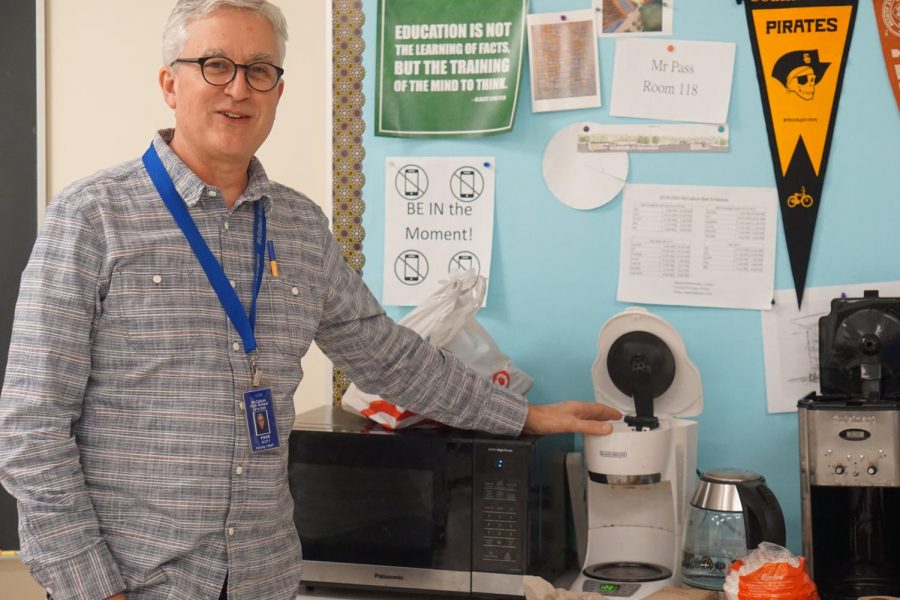
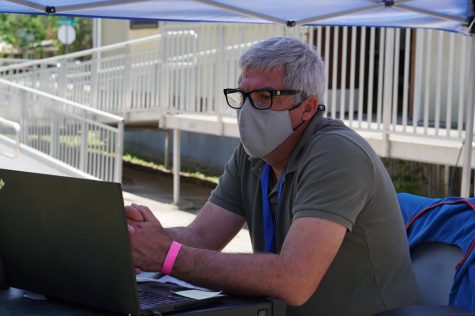
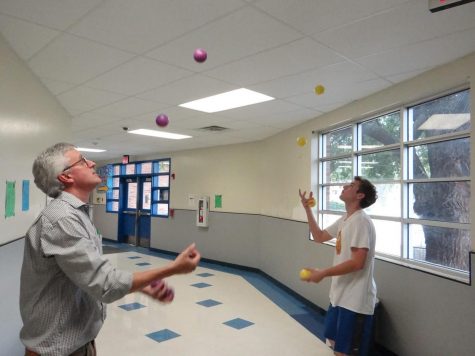
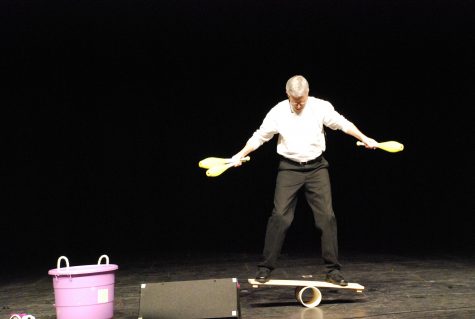

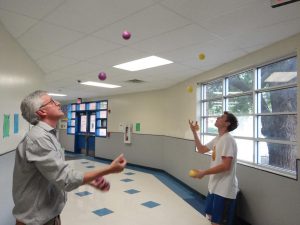
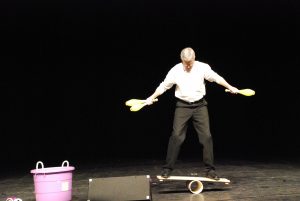
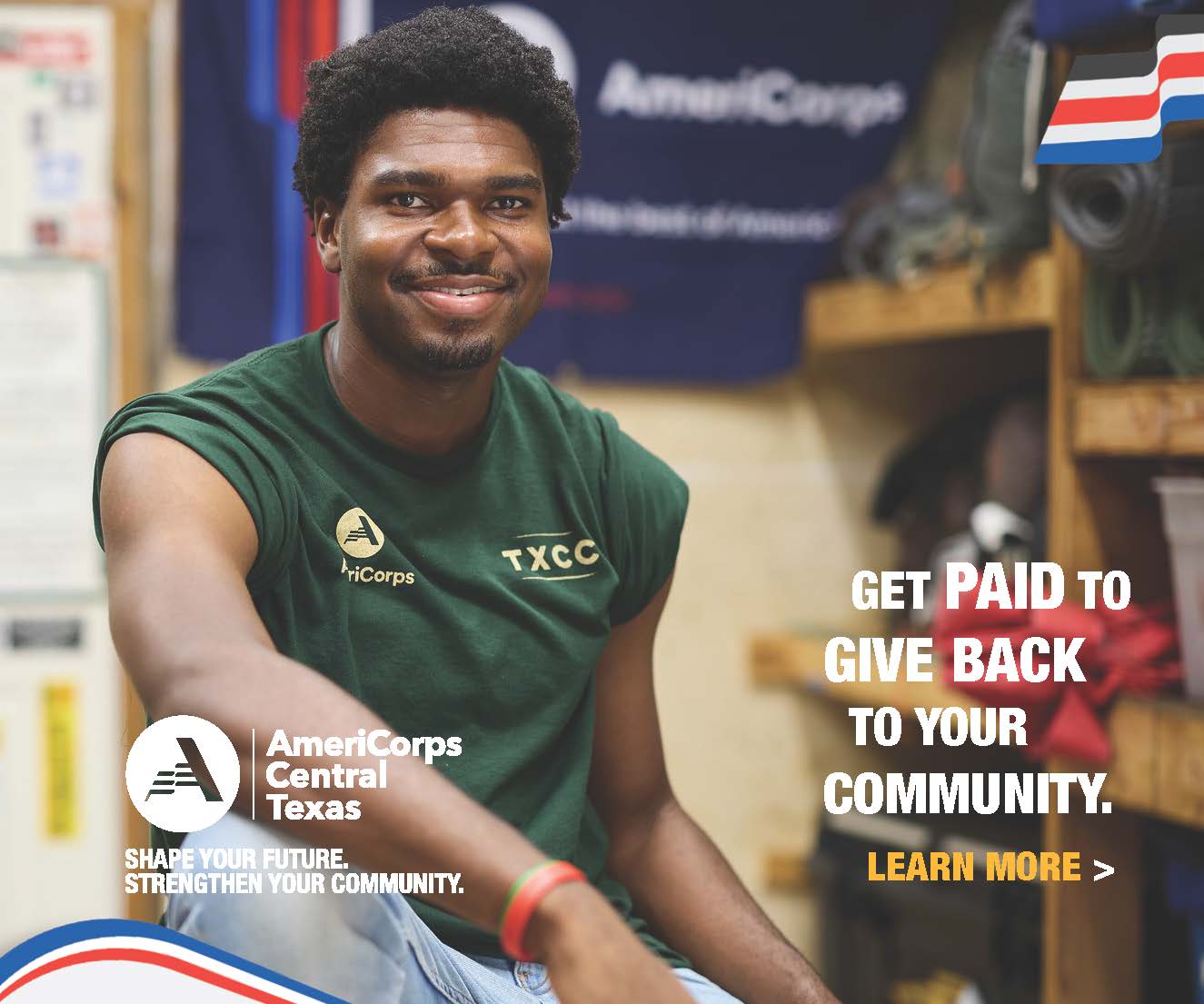
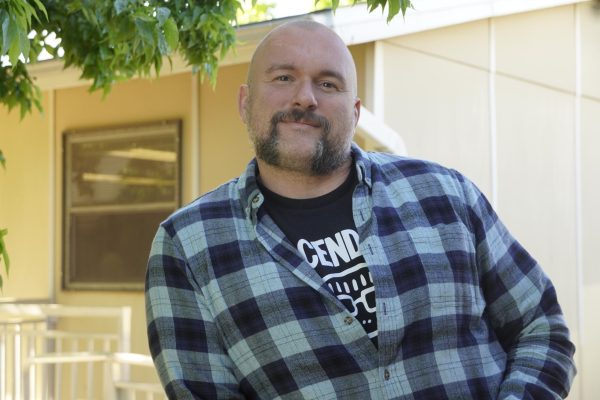

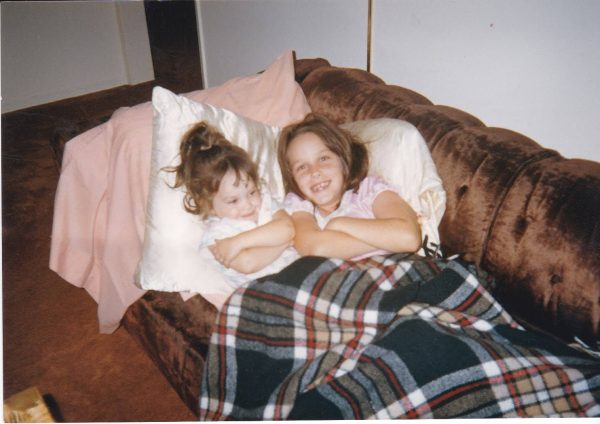
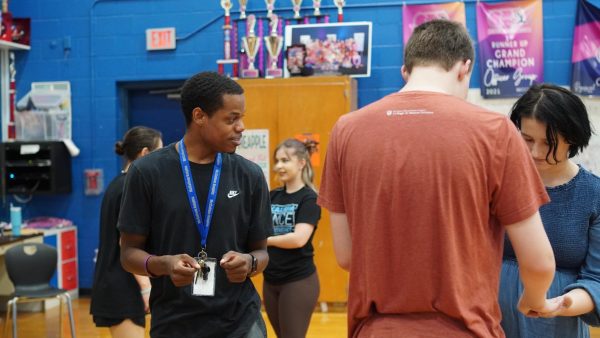

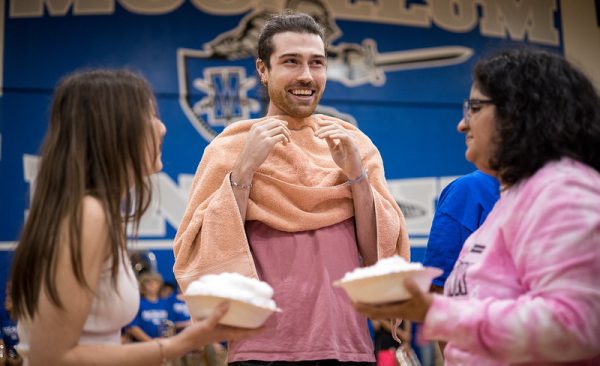
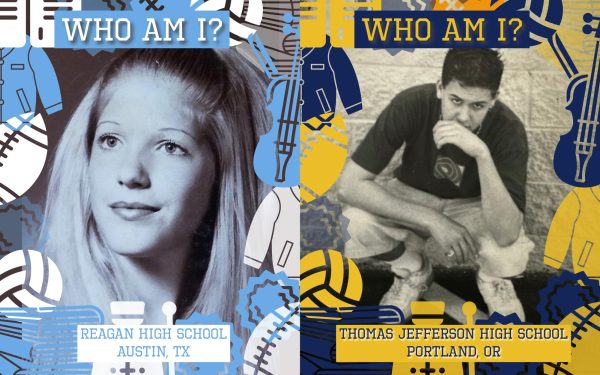
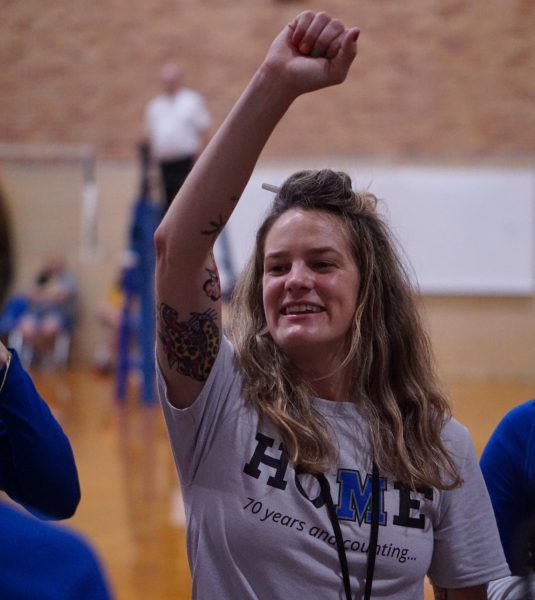
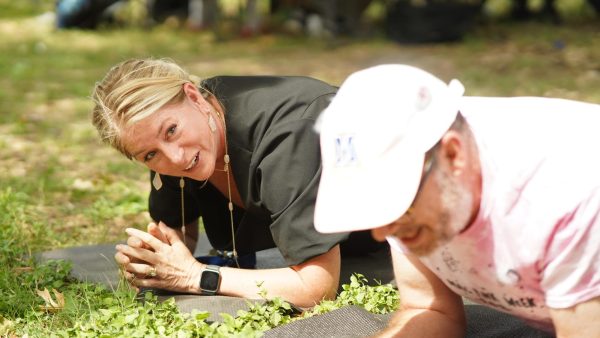
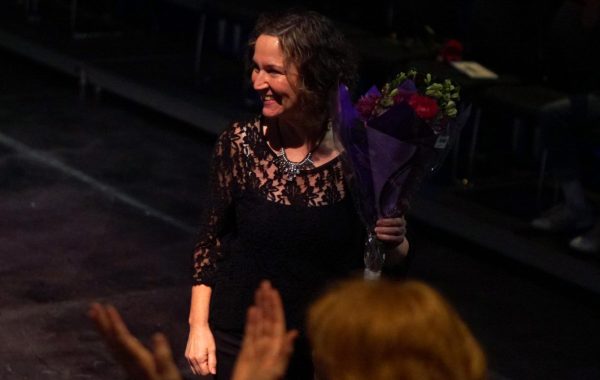

Jennifer Beall Saxton • Aug 9, 2021 at 12:16 am
Mr Pass taught me sophomore geometry in 1998 and AB Calculus in 2000-2001 at Westlake HS. He remains one of my all time most favorite teachers! I could have taken BC Calculus but he only taught AB and I cared more about having him for a second year than I did about the class. I went on to study and take the BC calculus exam anyway and passed out of the course at Duke, where I went on to graduate with a Math degree! (I wish this article shared more stories from alumni who pursued advanced math thanks to Mr Pass!). My favorite things about Mr Pass were always that he was a “big kid” with boundless energy and enthusiasm for math. I can still remember 20 years later the HUGE grin he would get on his face while telling dad jokes at the chalkboard. I remember the stories of his son and daughter (who must be fully grown now!). I had a lot going on in my home life back then and he was always a constant positive presence in my life. I’m sad no more students will get to benefit from his teaching!